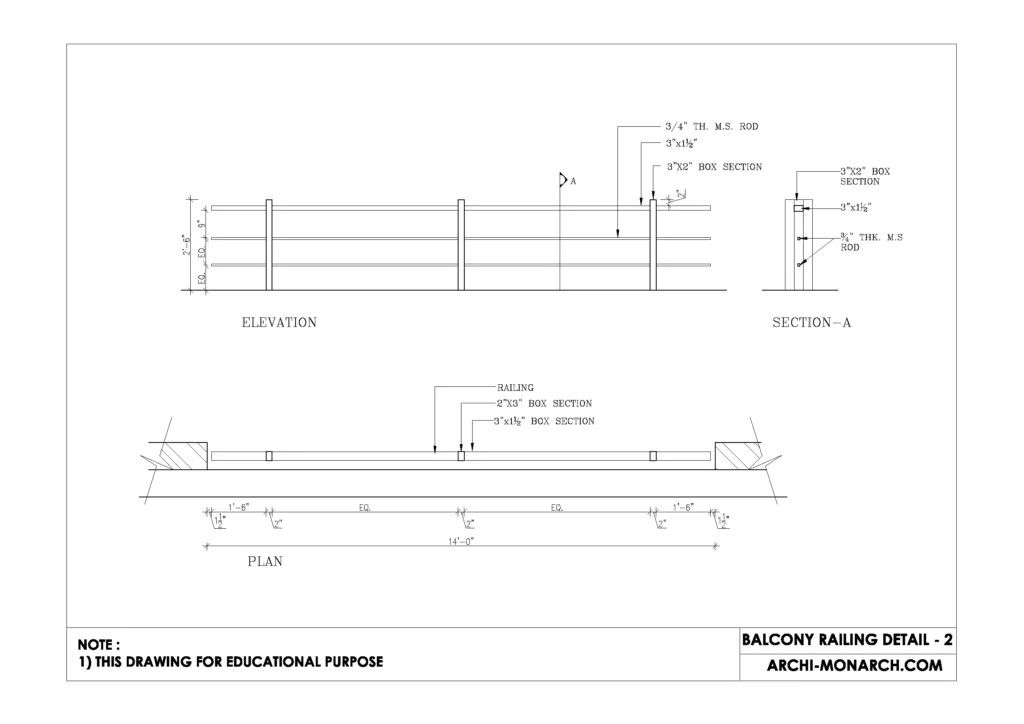A balcony railing is a safety feature in architecture that serves to prevent people from falling off a balcony. It is typically made of metal or wood and may be designed in a variety of styles to match the overall aesthetic of a building.
Balcony railings must meet certain safety regulations and codes, such as a minimum height requirement. They can also serve a decorative purpose and can be a design element in the architecture of a building.
If you want to know about the kitchen detail or miscellaneous detail or water tank detail, please click the link.
Image of balcony railing detail and downloadable (in DWG) link below

Balcony railing detail drawing – 2
A balcony railing detail drawing is a technical drawing that shows the specific design and construction details of a balcony railing. It will typically include dimensions, materials, and any necessary structural information. The drawing will also indicate the required safety regulations and codes that must be met.
The detail drawing is usually created by an architect or engineer and serves as a guide for the construction or fabrication of the railing. It will include all the necessary information for the contractor, fabricator and inspector to understand how to build the balcony railing according to the design intent.
A balcony railing detail drawing typically includes the following information:
- Dimensions and layout of the balcony railing, including the width and height of the railing, the spacing of the balusters or pickets, and the size of any decorative elements
- Materials used for the railing and any necessary hardware, such as brackets, posts, and fasteners
- Structural details, such as the type of support system and anchoring methods used to secure the railing to the building
- Any specific design elements, such as decorative patterns or unique shapes
- Safety regulations and codes that must be met, such as minimum height requirements and load-bearing capabilities
- Finishing details such as painting, coating, and cleaning instructions.
It is also common for the drawing to include sections, elevations and isometric views to give a better understanding of the railing, its connection to the building structure and its relationship with the flooring, flooring level and the surrounding areas.
It is important to note that these drawings are usually created by the architect or engineer who designed the building and the contractor or fabricator who will be responsible for building the railing should follow it closely to ensure that the railing is constructed according to the design intent and it meets all the safety regulations and codes.
Our tips to help you improve your architectural balcony railing detailing.
